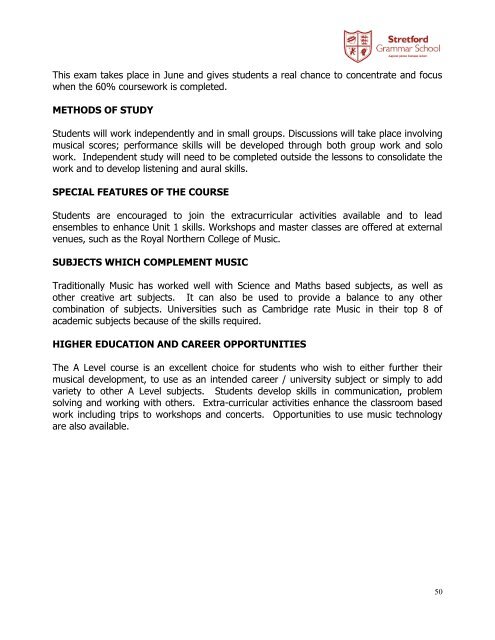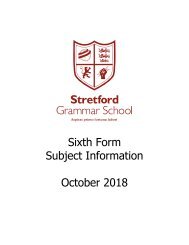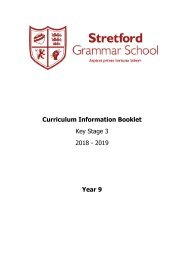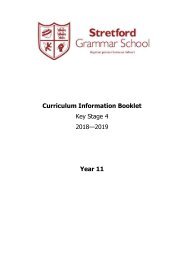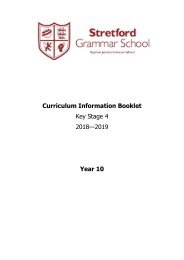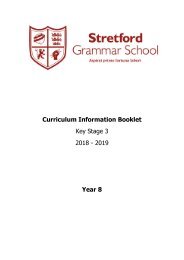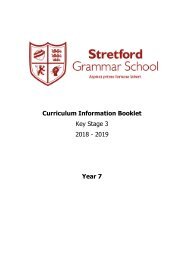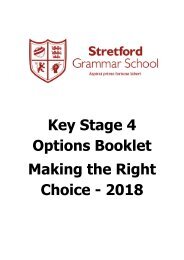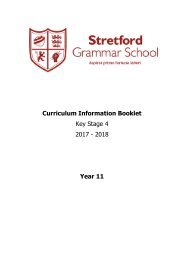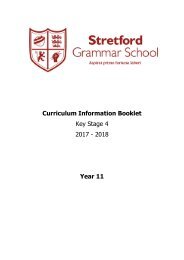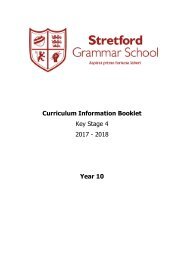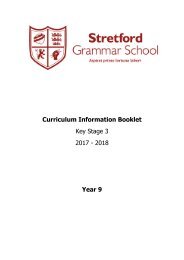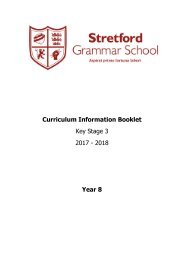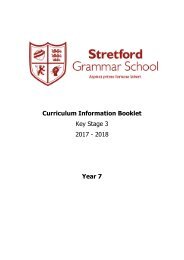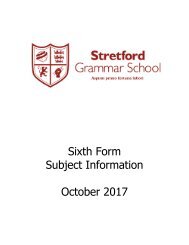Sixth Form Subject Information 2017/2018
You also want an ePaper? Increase the reach of your titles
YUMPU automatically turns print PDFs into web optimized ePapers that Google loves.
This exam takes place in June and gives students a real chance to concentrate and focus<br />
when the 60% coursework is completed.<br />
METHODS OF STUDY<br />
Students will work independently and in small groups. Discussions will take place involving<br />
musical scores; performance skills will be developed through both group work and solo<br />
work. Independent study will need to be completed outside the lessons to consolidate the<br />
work and to develop listening and aural skills.<br />
SPECIAL FEATURES OF THE COURSE<br />
Students are encouraged to join the extracurricular activities available and to lead<br />
ensembles to enhance Unit 1 skills. Workshops and master classes are offered at external<br />
venues, such as the Royal Northern College of Music.<br />
SUBJECTS WHICH COMPLEMENT MUSIC<br />
Traditionally Music has worked well with Science and Maths based subjects, as well as<br />
other creative art subjects. It can also be used to provide a balance to any other<br />
combination of subjects. Universities such as Cambridge rate Music in their top 8 of<br />
academic subjects because of the skills required.<br />
HIGHER EDUCATION AND CAREER OPPORTUNITIES<br />
The A Level course is an excellent choice for students who wish to either further their<br />
musical development, to use as an intended career / university subject or simply to add<br />
variety to other A Level subjects. Students develop skills in communication, problem<br />
solving and working with others. Extra-curricular activities enhance the classroom based<br />
work including trips to workshops and concerts. Opportunities to use music technology<br />
are also available.<br />
50


